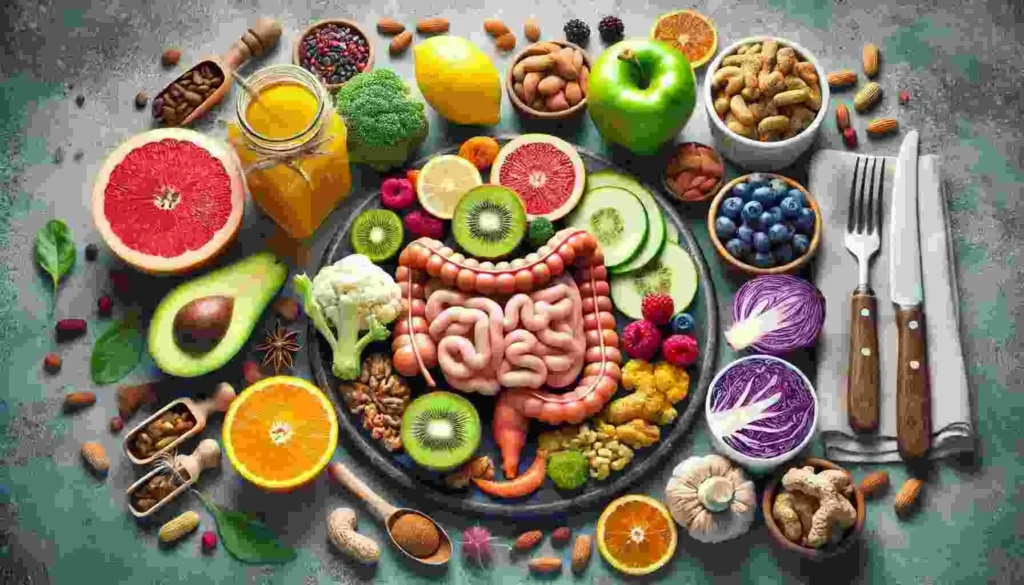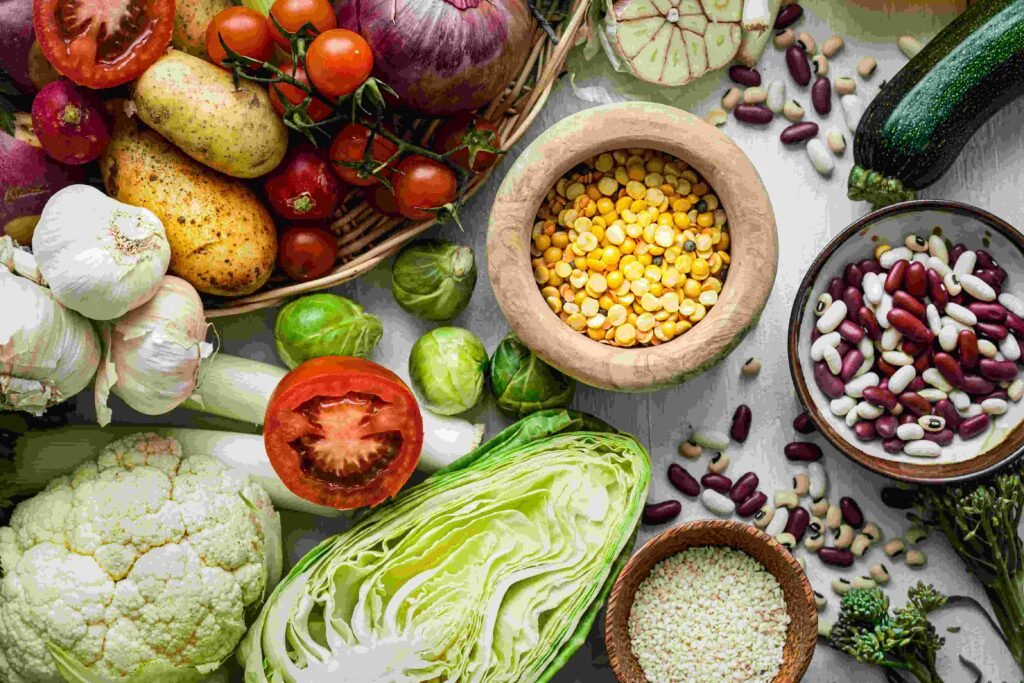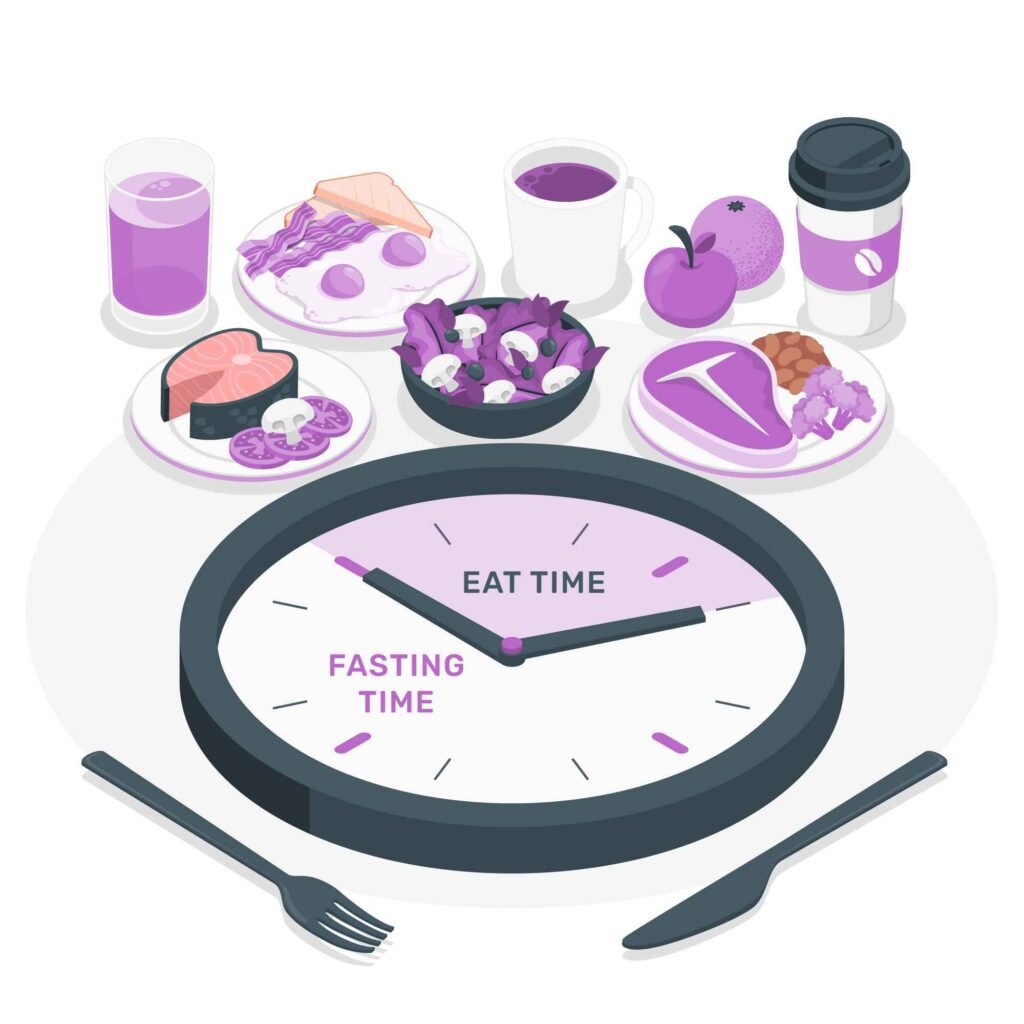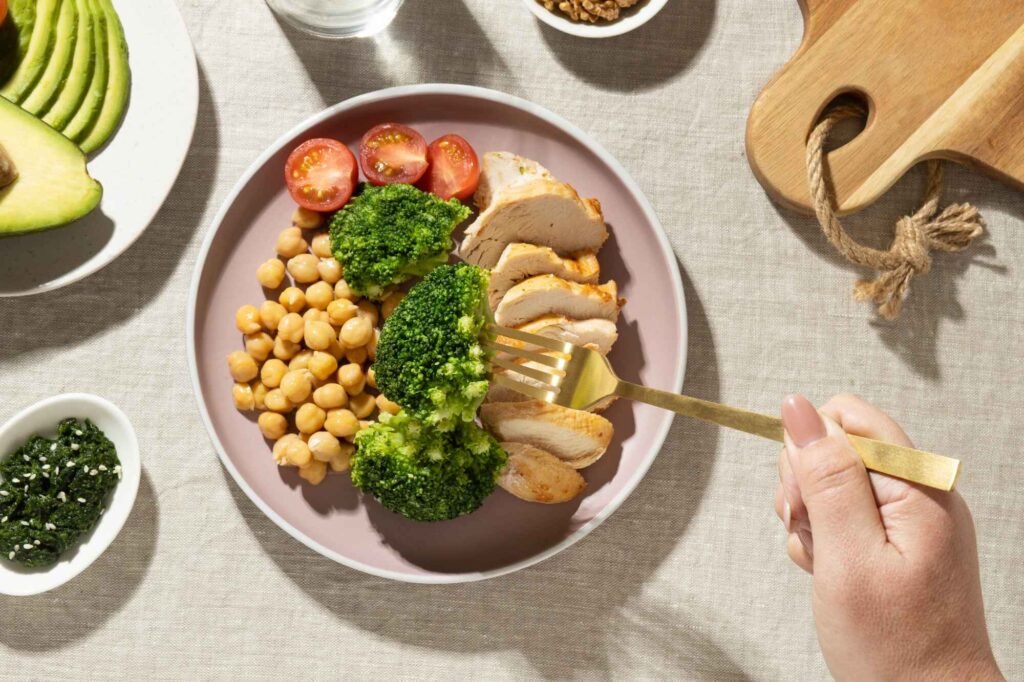
Gut Health and Diet: Best Foods for a Healthy Microbiome
Your gut microbiome — the diverse community of trillions of bacteria and other microorganisms living in your intestines — plays a crucial role in your overall health. From digesting food to boosting immunity and regulating mood, the health of your gut can affect nearly every part of your body. But what you eat significantly influences these microorganisms. If you want to improve your gut health, focusing on the right foods can make a world of difference.
In this guide, we’ll explore the best foods to nourish your microbiome and support optimal gut health.
Why Gut Health Matters
Your gut microbiome is like a thriving ecosystem. It consists of both good and bad bacteria, and maintaining the right balance is essential for your well-being. A balanced gut can:
- Support digestion: Good bacteria help break down food and absorb nutrients.
- Boost immunity: 70% of your immune system is located in your gut.
- Enhance mental health: Gut health influences the production of serotonin, a neurotransmitter that regulates mood.
- Prevent inflammation: A healthy gut helps keep inflammation in check, reducing the risk of chronic diseases.
Poor gut health, on the other hand, can lead to issues like bloating, constipation, fatigue, skin problems, and even depression. By eating foods that support a diverse and balanced microbiome, you’re investing in your overall health.
Probiotic-Rich Foods: The Good Bacteria You Need
Probiotics are live beneficial bacteria that can improve your gut health. Incorporating these foods into your diet can help increase the good bacteria in your digestive system.
1. Yogurt
Yogurt is one of the most well-known probiotic foods. It contains strains of beneficial bacteria like Lactobacillus and Bifidobacterium.
- Tip: Choose plain, unsweetened yogurt with live and active cultures. Flavored yogurts often contain added sugars, which can harm your gut health.
2. Kefir
Kefir is a fermented milk drink similar to yogurt but thinner in consistency. It contains a higher number of probiotic strains than yogurt, making it a powerhouse for gut health.
- Tip: Drink kefir daily as a smoothie base or on its own to boost your gut’s probiotic count.
3. Sauerkraut
Sauerkraut is finely chopped cabbage that’s been fermented. It’s rich in probiotics, fiber, and vitamins C and K.
- Tip: Opt for unpasteurized sauerkraut to ensure the probiotics are still alive. Pasteurization kills beneficial bacteria.
4. Kimchi
A staple in Korean cuisine, kimchi is a spicy fermented vegetable dish, usually made with cabbage and radishes. It’s loaded with probiotics and antioxidants.
- Tip: Incorporate kimchi into stir-fries, rice dishes, or even scrambled eggs for a gut-healthy meal.
5. Kombucha
Kombucha is a fermented tea that contains probiotics, along with a refreshing fizz. It can support digestion and boost energy levels.
- Tip: Look for kombucha with low sugar content, as excessive sugar can counteract its benefits.
Prebiotic Foods: Fuel for Your Gut Bacteria
While probiotics add good bacteria to your gut, prebiotics are the fiber-rich foods that feed these bacteria, helping them thrive. Prebiotics are non-digestible fibers that your gut bacteria ferment, producing beneficial short-chain fatty acids.
1. Garlic
Garlic is a powerful prebiotic containing inulin, a type of fiber that nourishes beneficial gut bacteria.
- Tip: Add raw or cooked garlic to your dishes. It also has antimicrobial properties that can keep harmful bacteria at bay.
2. Onions
Onions are another great source of inulin. They promote the growth of good bacteria and have antioxidant properties.
- Tip: Use onions in soups, salads, or stir-fries to add flavor and gut health benefits.
3. Bananas
Bananas, especially when slightly green, are rich in resistant starch, which acts as a prebiotic. They also help with digestion and reduce bloating.
- Tip: Incorporate bananas into smoothies, oatmeal, or eat them as a snack.
4. Asparagus
Asparagus is packed with inulin and antioxidants that support a healthy gut lining.
- Tip: Lightly steam or grill asparagus to retain its nutrients and add it to salads or side dishes.
5. Oats
Oats are a fantastic source of beta-glucan, a type of soluble fiber that feeds gut bacteria and supports heart health.
- Tip: Start your day with a bowl of oatmeal or overnight oats to boost your prebiotic intake.
High-Fiber Foods: Supporting Digestion and Gut Motility
Dietary fiber is essential for regular bowel movements and overall gut health. There are two types of fiber — soluble and insoluble — and both play a key role in maintaining a healthy digestive system.
1. Whole Grains
Whole grains like brown rice, quinoa, barley, and whole wheat are rich in fiber, which helps regulate digestion.
- Tip: Swap refined grains (like white rice and white bread) for whole grains to improve your gut health.
2. Legumes
Beans, lentils, and chickpeas are excellent sources of fiber and protein. They support gut motility and feed beneficial bacteria.
- Tip: Add legumes to soups, salads, or make a hearty chili for a fiber-rich meal.
3. Chia Seeds
Chia seeds are high in soluble fiber, which can help maintain regularity and reduce constipation.
- Tip: Mix chia seeds into smoothies, yogurt, or make a chia pudding for a gut-friendly snack.
4. Berries
Berries like blueberries, raspberries, and strawberries are packed with fiber, antioxidants, and polyphenols that support gut health.
- Tip: Enjoy berries fresh or add them to your morning cereal or smoothies.
5. Apples
Apples contain pectin, a type of soluble fiber that helps improve digestion and feed good gut bacteria.
- Tip: Eat apples with the skin on for maximum fiber content.
Lifestyle Factors That Affect Gut Health
While diet plays a significant role in maintaining a healthy microbiome, your lifestyle habits can also greatly influence your gut health. Incorporating these lifestyle changes can support your digestive system and promote a balanced microbiome.
1. Get Enough Sleep
Poor sleep can disrupt the balance of your gut bacteria. Research shows that a lack of sleep or irregular sleep patterns can negatively impact gut health, leading to issues like inflammation and poor digestion.
- Tip: Aim for 7-9 hours of quality sleep each night. Maintain a consistent sleep schedule to keep your gut and body in balance.
2. Manage Stress Effectively
Stress doesn’t just affect your mind; it can wreak havoc on your gut, too. Chronic stress can reduce the diversity of your gut bacteria and lead to digestive issues like bloating, constipation, and even irritable bowel syndrome (IBS).
- Tip: Practice stress-reducing activities like mindfulness, yoga, meditation, or deep-breathing exercises. Even short breaks for relaxation can make a difference.
3. Exercise Regularly
Physical activity is beneficial for your gut. Exercise can increase the diversity of your gut bacteria, which is a key marker of good gut health. Regular movement helps improve digestion and reduces inflammation.
- Tip: Aim for at least 30 minutes of moderate exercise most days of the week. Activities like walking, jogging, cycling, and swimming can all support your gut health.
4. Stay Hydrated
Water is essential for healthy digestion. It helps move food through your intestines and keeps the lining of your gut hydrated, aiding nutrient absorption.
- Tip: Drink at least 8 glasses of water a day. Herbal teas and water-rich fruits and vegetables (like cucumbers and watermelon) can also contribute to hydration.
5. Avoid Antibiotics Unless Necessary
Antibiotics can wipe out harmful bacteria, but they also kill beneficial bacteria in your gut. Overuse of antibiotics can lead to a weakened microbiome and digestive issues.
- Tip: Only take antibiotics when prescribed by a healthcare professional. After a course of antibiotics, focus on eating probiotic-rich foods to replenish good bacteria.
Foods to Avoid for Better Gut Health
Just as some foods can promote a healthy gut, others can disrupt it. To support your microbiome, it’s important to limit or avoid the following foods:
1. Refined Sugars
High sugar intake can lead to an imbalance in your gut bacteria. Excess sugar feeds harmful bacteria and yeast, like Candida, leading to overgrowth and inflammation.
- Tip: Limit sugary snacks, sodas, and processed foods. Opt for natural sweeteners like honey or maple syrup in moderation.
2. Artificial Sweeteners
Some artificial sweeteners, like aspartame and sucralose, may negatively impact your gut bacteria and contribute to digestive issues.
- Tip: Use natural alternatives like stevia or monk fruit if you need a sugar substitute.
3. Processed Foods
Processed and packaged foods are often low in fiber and high in unhealthy fats, sugar, and preservatives. These ingredients can harm your gut microbiome and lead to inflammation.
- Tip: Choose whole, unprocessed foods as often as possible. Cook meals at home to have more control over ingredients.
4. Fried Foods
Fried and greasy foods can slow down digestion and promote the growth of harmful bacteria, causing bloating and discomfort.
- Tip: Opt for baking, steaming, or grilling instead of frying.
5. Alcohol
Excessive alcohol consumption can damage your gut lining, reduce beneficial bacteria, and promote inflammation.
- Tip: If you drink alcohol, do so in moderation. Opt for gut-friendly alternatives like kombucha for a refreshing drink.
Simple Recipes to Support a Healthy Microbiome
Incorporating gut-friendly recipes into your daily routine doesn’t have to be complicated. Here are a few easy, nutrient-rich recipes to boost your gut health.
1. Probiotic Smoothie
This smoothie combines probiotics and prebiotics to nourish your gut.
- Ingredients:
- 1 cup plain kefir or yogurt
- 1 banana (slightly green)
- 1 tablespoon chia seeds
- ½ cup blueberries
- 1 teaspoon honey (optional)
- Instructions: Blend all ingredients until smooth. Enjoy immediately.
2. Gut-Healing Bone Broth
Bone broth is rich in collagen, which supports the gut lining.
- Ingredients:
- 2 pounds chicken or beef bones
- 2 carrots, chopped
- 2 celery stalks, chopped
- 1 onion, quartered
- 3 cloves garlic, smashed
- 2 tablespoons apple cider vinegar
- Salt and pepper to taste
- Water to cover
- Instructions: Add all ingredients to a large pot or slow cooker. Simmer for 12-24 hours. Strain and drink the broth or use it in soups.
3. Fermented Veggie Bowl
This bowl combines fiber, probiotics, and nutrients for a complete gut-friendly meal.
- Ingredients:
- 1 cup cooked brown rice or quinoa
- ½ cup steamed broccoli
- ½ cup sauerkraut or kimchi
- 1 avocado, sliced
- 1 tablespoon sesame seeds
- Drizzle of olive oil and lemon juice
- Instructions: Combine all ingredients in a bowl and enjoy.
Signs Your Gut Health is Improving
When you start focusing on your gut health, you might notice some positive changes. Here are some signs that your gut is on the right track:
- Improved Digestion: Less bloating, gas, and constipation.
- Better Energy Levels: Fewer energy crashes throughout the day.
- Clearer Skin: Reduced breakouts and skin inflammation.
- Enhanced Mood: Feeling less anxious or irritable.
- Regular Bowel Movements: More consistent and comfortable digestion.
Gut Health FAQs: Common Questions and Expert Answers
When it comes to gut health, you probably have a lot of questions. Let’s address some of the most common queries to help you understand your microbiome better and make informed choices.
1. How Long Does It Take to Improve Gut Health?
Improving gut health is a gradual process. Some people notice improvements in digestion and energy levels within a few days of changing their diet, while others may take weeks or even months.
- Quick Tip: Consistency is key. Incorporating probiotics, prebiotics, and high-fiber foods daily can lead to noticeable changes within 4-6 weeks.
2. Can Gut Health Affect Mental Health?
Yes! The gut and brain are closely connected through the gut-brain axis. Your gut produces about 90% of your body’s serotonin — a neurotransmitter that regulates mood. An imbalance in gut bacteria can lead to mood swings, anxiety, and depression.
- Quick Tip: If you’re dealing with stress or anxiety, focus on gut-friendly foods like yogurt, kefir, and fiber-rich vegetables.
3. What Are the Signs of an Unhealthy Gut?
Some common signs of poor gut health include:
- Digestive Issues: Bloating, constipation, diarrhea, and gas.
- Fatigue: Feeling tired even after a full night’s sleep.
- Skin Problems: Acne, eczema, or psoriasis.
- Frequent Illness: Weak immune function.
- Food Intolerances: Difficulty digesting certain foods.
4. Do I Need Probiotic Supplements?
While probiotic supplements can be helpful, they’re not always necessary. A diet rich in probiotic and prebiotic foods can provide the same benefits. However, if you have a specific digestive issue or have recently taken antibiotics, supplements may be beneficial.
- Quick Tip: Consult a healthcare professional to find the right probiotic strain for your needs.
5. Is It Possible to Overdo Probiotics?
Yes. Too many probiotics can cause bloating, gas, and digestive discomfort. Moderation is key — balance probiotic foods with prebiotics and fiber for optimal gut health.
Practical Tips for Long-Term Gut Health
Maintaining a healthy gut is a long-term commitment. Here are practical, easy-to-follow tips to ensure your microbiome stays in balance for years to come.
1. Eat a Diverse Range of Foods
A diverse diet leads to a diverse microbiome, which is essential for gut health. Different types of bacteria thrive on different nutrients.
- Tip: Incorporate a variety of fruits, vegetables, legumes, and whole grains into your meals. Aim for 30 different plant-based foods each week.
2. Limit Processed Foods
Processed foods are often low in nutrients and fiber and high in unhealthy fats and sugars. These can disrupt your gut balance and promote harmful bacteria.
- Tip: Focus on whole, nutrient-dense foods. Prepare meals at home to avoid hidden additives.
3. Practice Mindful Eating
Eating too quickly or while distracted can impair digestion. Mindful eating helps your body properly break down and absorb nutrients.
- Tip: Chew your food thoroughly and savor each bite. This gives your digestive system time to process the food efficiently.
4. Stay Active
Regular exercise supports digestion, reduces inflammation, and promotes a healthy microbiome.
- Tip: Incorporate a mix of cardio, strength training, and flexibility exercises into your weekly routine.
5. Listen to Your Body
Your gut is constantly sending signals. Pay attention to how certain foods make you feel and adjust your diet accordingly.
- Tip: Keep a food diary to track what foods support or hinder your digestion.
Creating a Gut-Friendly Meal Plan
To make gut health easy and sustainable, consider creating a meal plan that includes a mix of probiotics, prebiotics, and fiber-rich foods. Here’s a sample daily meal plan to get you started.
Breakfast: Overnight Oats with Yogurt
- Ingredients:
- ½ cup rolled oats
- 1 cup plain yogurt (probiotic)
- 1 tablespoon chia seeds (fiber)
- ½ banana (prebiotic)
- Handful of blueberries (antioxidants)
- Instructions: Combine all ingredients in a jar and refrigerate overnight. Enjoy in the morning for a gut-boosting breakfast.
Lunch: Quinoa Salad with Fermented Veggies
- Ingredients:
- 1 cup cooked quinoa (fiber)
- ½ cup sauerkraut or kimchi (probiotic)
- 1 cup steamed broccoli (prebiotic)
- ½ avocado (healthy fat)
- Drizzle of olive oil and lemon juice
- Instructions: Mix all ingredients and enjoy a satisfying, gut-friendly lunch.
Dinner: Grilled Salmon with Roasted Asparagus
- Ingredients:
- 1 salmon fillet (omega-3s)
- 1 cup asparagus (prebiotic)
- 1 cup sweet potatoes (fiber)
- Garlic and herbs for seasoning
- Instructions: Grill the salmon and roast the asparagus and sweet potatoes for a balanced, gut-friendly meal.
Snack Ideas
- Kefir smoothie with berries
- Apple with almond butter
- Carrot sticks with hummus
The Future of Gut Health: Trends and Research
Gut health is a growing field of research, and scientists are continually uncovering new connections between the microbiome and overall health. Here are some exciting trends to watch:
1. Personalized Nutrition
Advances in gut microbiome testing allow for personalized diet recommendations. Soon, you might get custom meal plans based on your unique gut bacteria.
2. Postbiotics
Postbiotics are the byproducts of probiotic activity. They include compounds like short-chain fatty acids and enzymes that benefit gut health. These are gaining attention for their potential to improve digestion and immunity.
3. Gut-Brain Therapies
With the gut-brain connection becoming clearer, therapies that focus on improving both mental health and gut health are on the rise. Techniques like gut-directed hypnotherapy are showing promising results for IBS sufferers.



